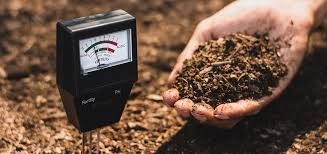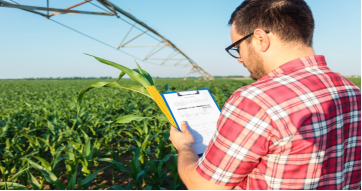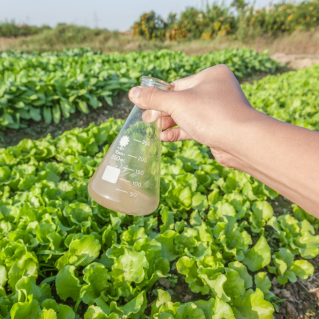

Our team has professionals who collaborate with farmers and help them grow successful crops. We visit and survey farms to assess the needs of farmers and rural communities, providing technical guidance and training on best practices, developing and implementing plans for agricultural development, monitoring and evaluating the impact of agricultural interventions.

We help farmers understand what nutrients are missing from their soil, so they can make sure their crops get everything they need for optimum growth. Determining if your soil has toxic levels of heavy metals or other elements that can be harmful to plants. Determining what crops grow best in your area.
Agricultural productivity depends on the farmland quality, and a soil test can timely report a problem in crop growth conditions. Field suitability analysis helps choose the appropriate crops or decide on land use for farming.
It is the farmland analysis for multiple parameters like chemical content, toxicity, pH level, salinity, earth-dwelling biota, etc. Such tests also provide information on chemical contamination, humus or organic content, electric conductivity, cation exchange capacity, and other physical and chemical properties.
The analysis type depends on the explored components or properties of the field ground that may beneficially or adversely impact crop development. The most frequently-used types analyze and measure:

If you invest directly or indirectly in any crop project, our crop monitoring services can help you. We monitor crops during their growth and harvesting and through to the first storage point – minimizing any potential risks of losses.
For field monitoring, our services include:
The water used for agricultural purposes is tested on parameters such as salinity, presence of sodium, and calcium which determine the water infiltration rate. Certain toxic ions and the presence of excessive yield-reducing nutrients are also tested.
We follow an impeccable testing methodology and ensure that the agricultural water that reaches India’s farms is of appropriate quality and does not hamper a farmer’s yield. We then determine the chemicals and minerals that the water can and cannot contain. This attribute of paying attention to minute details has ensured repeated deliverances of superior testing of the water quality.
Regular testing is the only way to know if problems exist with your water quality. It also helps:
